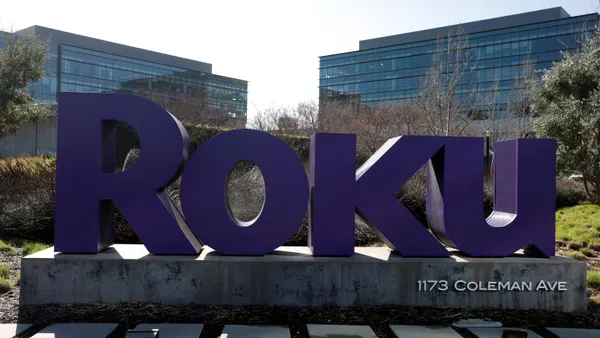Dive Brief:
- Google has delayed its participation in a consortium of ad technology companies and is causing members to be out of compliance with Europe’s new General Data Protection Regulation (GDPR) which could trigger penalties, according to sources cited in a Reuters report. Noncompliance can result in fines up to 4% of a company’s annual revenue.
- Several ad tech firms jointly launched software to obtain consent from users before delivering ads ahead of GDPR, which went into effect May 25 and aims to protect user privacy. Google has said it will not join the program until August, according to Reuters. The company reportedly created a temporary solution, which the sources said was ineffective, resulting in some advertising clients targeting ads to people who have not consented to receive personalized ads.
- Owners of ad-funded websites and apps are the most at risk of a GDPR fine, according to Reuters. Google says these owners are responsible for getting consent from European consumers to deliver targeted ads. A website user's data can go through many ad tech firms before ads are loaded, and GDPR requires that each obtain user consent.
Dive Insight:
The ripple effects of Google’s delay in entering the ad tech consortium demonstrates how much the company dominates the global digital ad landscape. In the U.S., the digital duopoly of Google and Facebook were projected to capture 63.1% of digital ad investment in 2017, according to eMarketer, and the companies are expected to take about half of all digital ad spend worldwide in 2018.
Ahead of GDPR, Google said it would support publishers that wanted to only show non-personalized ads to consumers who had opted out of data collection to help them comply with the rule. The company also said it was launching new controls for DFP/AdX programmatic transactions, AdSense for Content, AdSense for Games and AdMob to offer more control over the third parties that serve ads to a site’s users.
Google and Facebook have faced criticism from competitors who have said the duopoly benefits from an advantage over smaller ad tech firms under GDPR because the companies have large-scale, sophisticated ways to more easily obtain consent from users. Many have said that it will create an industry standard that will be difficult for smaller companies to comply with. To push back, German media giant Axel Springer and Norwegian media group Schibsted teamed up with AppNexus to endorse the IAB Transparency and Consent Framework for GDPR implementation.












